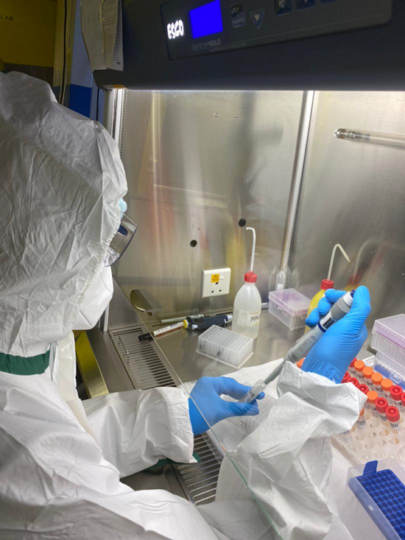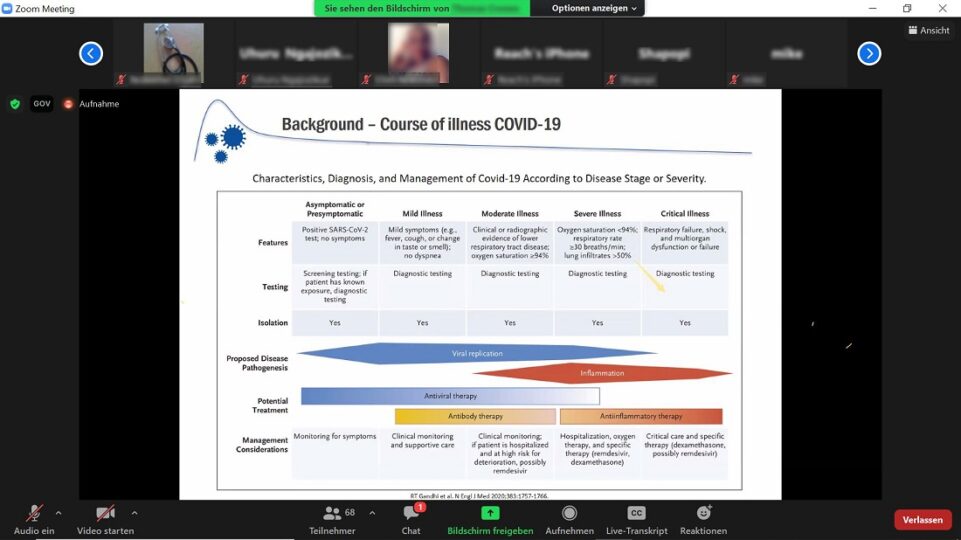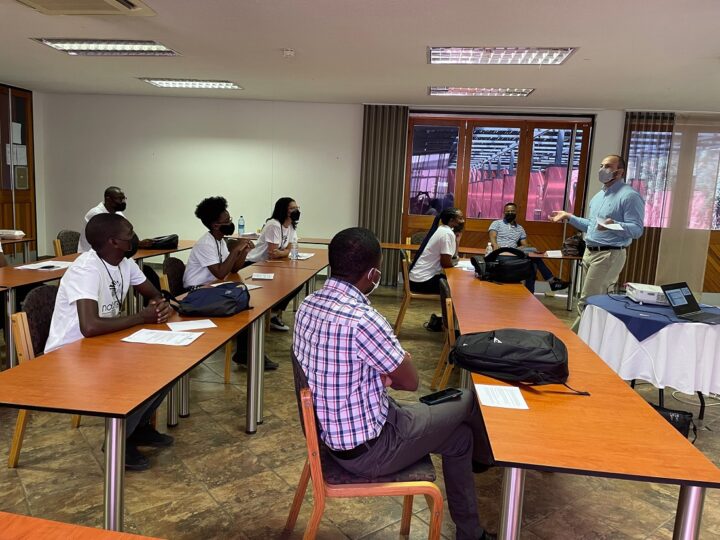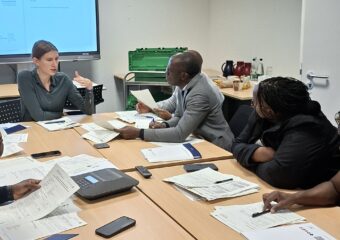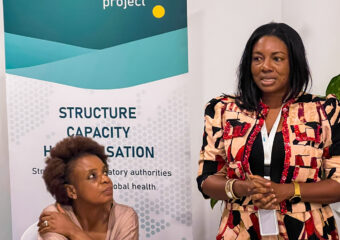COVID-19 Emergency Support 3rd Wave Namibia (3rdWaveNAM), July – December 2021
On request, RKI supported the Namibia partners during the third wave of COVID-19, which was by far the highest in Namibia resulting in a high number of hospitalised COVID-19 patients and high case fatality rates. In June 2021, it was unclear how long Namibia would be able to effectively manage their COVID-19 response. The objectives of the project were to minimise the number of deaths and to enable the country to respond faster and better to future COVID-19 waves.
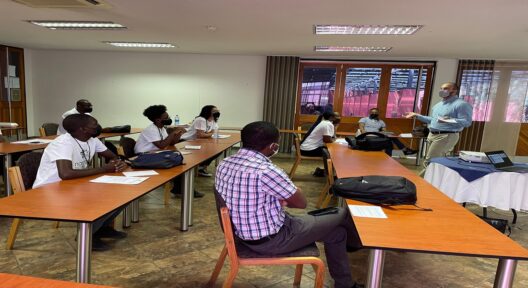
On request, RKI supported the Namibia partners during the third wave of COVID-19, which was by far the highest in Namibia resulting in a high number of hospitalised COVID-19 patients and high case fatality rates. In June 2021, it was unclear how long Namibia would be able to effectively manage their COVID-19 response. The objectives of the project were to minimise the number of deaths and to enable the country to respond faster and better to future COVID-19 waves.
In May and June 2021, the number of confirmed COVID-19 cases in Namibia increased exponentially from about 2,000 to over 10,000 new cases per week in a population of about 2.5 million. This third wave of COVID-19 became by far the highest in Namibia to date. The epicentre was the central Khomas region, where the densely populated capital Windhoek is located. The number of hospitalised COVID-19 patients there exceeded the capacity of most hospitals, resulting in a sharp increase in case fatality rates. In June 2021, it was unclear how long Namibia would be able to effectively manage their COVID-19 response.
In this situation, the Namibian Ministry of Health & Social Services (MoHSS) approached its Twinning project partner, the Robert Koch Institute, with a request for support. In response to this request, the four units of the Centre for International Health Protection (ZIG) developed an emergency project together with the MoHSS, the University of Namibia (UNAM) and the Research Centre Borstel (FZB). The title of the project was “COVID-19 Emergency Support 3rd Wave Namibia” (3rdWaveNam). It was funded by the German Federal Ministry of Health (BMG) as part of the Global Health Protection Programme (GHPP) and jointly led by the RKI departments ZIG 1, Information Centre for International Health Protection, and ZIG 4, Public Health Laboratory Support. The overall objective of the project was to support Namibia to cope with the third COVID-19 wave and to minimise the number of deaths. It also aimed to enable the country to respond faster and better to future COVID-19 waves.
The project addressed the following most urgent needs of the Namibian health system in this situation:
Funded by the GHPP, the RKI’s ZIG was able to respond to Namibia’s official request for support. A needs-based, tailored COVID-19 pandemic support was developed for Namibia. This was possible through the well-established working relationships with partners in Germany and Namibia due to the Namibia-RKI Twinning Project (TwiNit) already in place, and through the use of existing resources and mechanisms.
However, the third COVID-19 wave developed so quickly in Namibia that it already ended in late August 2021 after an extremely critical situation in June/July. As a result, much of the emergency aid provided by the project was not delivered until after the end of the third COVID-19 wave.
Nevertheless, the support provided was important for the response to the fourth wave (Omikron variant) starting in November/December 2021 and for the preparation of future COVID-19 waves.
Date: December 2022

